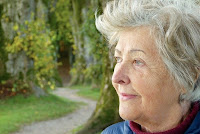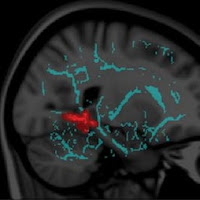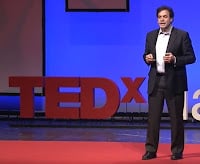
Infrared Sensor Spots Alzheimer’s 17 Years Before Symptoms
A new sensor has been developed that can detect Alzheimer’s more than a decade before symptoms appear. Learn more.

A new sensor has been developed that can detect Alzheimer’s more than a decade before symptoms appear. Learn more.

Rhesus macaque monkeys are being used to research early-stage Alzheimer’s. Find out why they are so much better than mice. Learn the advantages they offer scientists in the search for a cure.

Researchers find that people with dementia who received the drug suvorexant showed a drop in tau and amyloid beta. The drug is already available for sleep problems in Alzheimer’s. Learn more.

Scientists at UC San Francisco have found a way to reverse some of the negative effects of aging on the brain, using a video game designed to improve cognitive control.

What kind of brain enables “superagers” to learn and recall novel information as well as a 25-year-old? Researchers have found the answer. Learn more.

A molecule found in green tea helped UCLA biochemists discover several molecules that can destroy tau fiber. Learn more.

A certain protein in the blood can be used to predict the eventual appearance of Alzheimer’s. Will this allow for early intervention?

Brain patterns in concussions are similar to patterns seen in Alzheimer’s. Why? The initial traumatic event that caused the concussion may trigger a sequence of degenerative changes in the brain.
With 1.7 million annual concussions in the U.S., learn more about these relevant findings.

During aging as well as during Alzheimer’s or Parkinson’s disease, iron accumulates in the human brain. Now, researchers found that in vertebrates, a microRNA called

Dr. Rudy Tanzi is a top researcher in the fight against Alzheimer’s. Chris Mann is a famed music star. Learn about the latest research and see how they join forces in this remarkable video.

TWENTY MUSIC VIDEOS: Music says what words never can. Take in these engaging, moving songs about living well with Alzheimer’s.

TEEPA CARE-TIP VIDEO:
Dementia dangerously alters a person’s sense of smell. Teepa Snow brings to light what people with dementia smell – and what they don’t. Learn to prevent hazards and frustrations.

“Sundowning” describes agitation and anxiety often felt towards the end of the day in dementia. See what it is and what you can do about it.

SHORT-TERM MEMORY lapses are obvious signs of Alzheimer’s, but other tell-tale signals begin to show much earlier. Learn how to look for semantic impairments, such as simple questions about size.

Three important dementia studies focus on HS-AGING, a type of dementia almost as common as Alzheimer’s in the 85+ group. Yet few people have heard of it. Why? What makes it different?

An intriguing study of 120 grandmothers might surprise you. Doctors know socially engaged people have better cognition and less dementia. But can a person get too much of a good thing? What’s the right balance?

Enjoy this great duet between a musician with dementia and his son. A triumph of spirit over Alzheimer’s! Sing-a-long if you like!
No spam, only news and updates.


